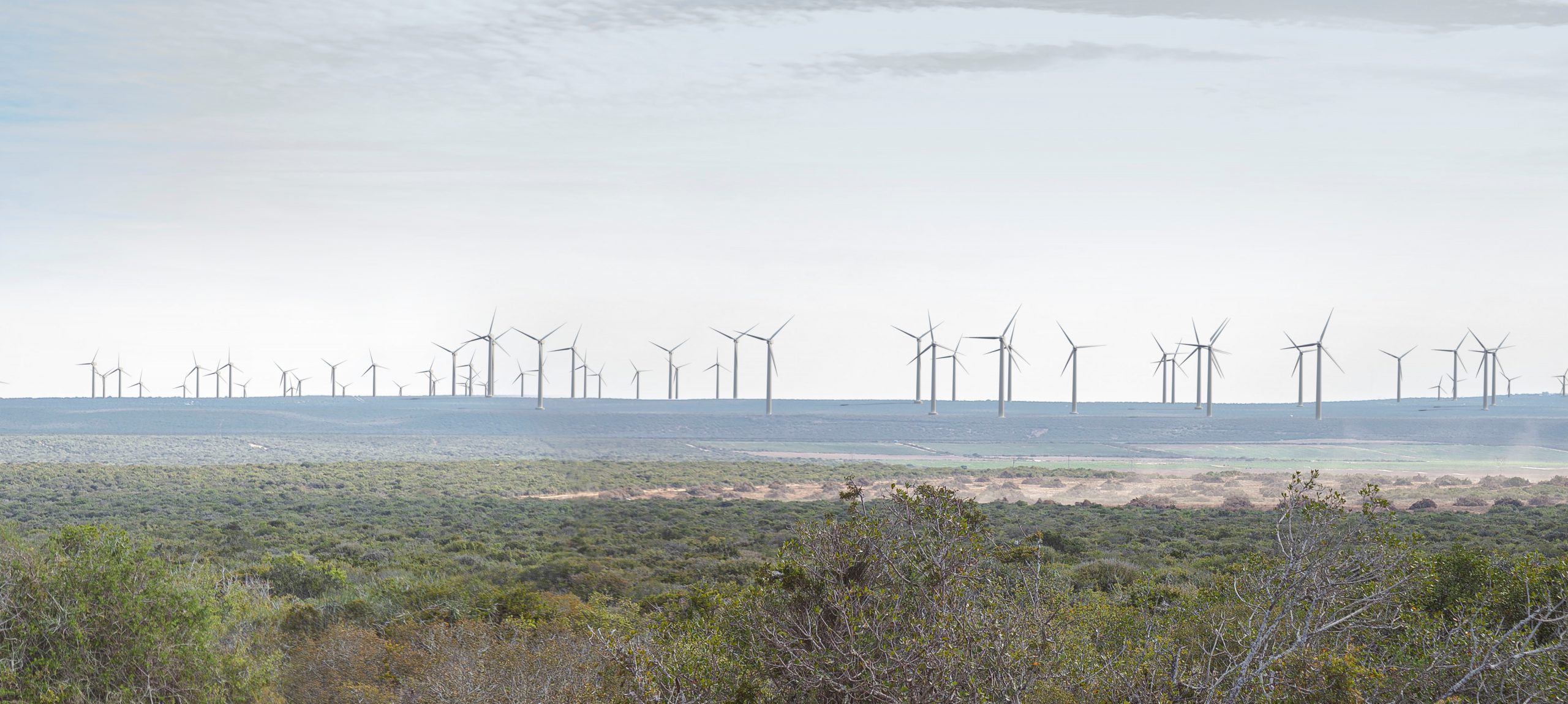By Luvuyo Mjekula
An association of renowned game reserves, including Shamwari, Kwandwe, Lalibela and Kariega, has warned that inappropriately placed wind farms in the Eastern Cape, such as the proposed Albany Wind Farm immediately adjacent to Makhanda, are a threat to biodiversity, healthy ecosystems, conservation and tourism.
The Indalo Private Game Reserve Association has launched an impassioned campaign to challenge the “misplaced wind farms endangering the very fabric of this historic town [of Makhanda]and the region”.
“The call is clear: protect our heritage, preserve our biodiversity, and stand against the ecological injustice unfolding in our midst,” reads a statement from the association.
It says the potential threat of the proposed Albany Wind Farm isn’t just to Makhanda’s aesthetics and the region’s landscape. “It is a direct blow to its schools, university, suburbs, and the very heart of its community. The potential misuse of municipal land for wind farms jeopardises the livelihoods of local residents.”
The association says although Makhanda is at the heart of its concerns, the battle extends to the entire Eastern Cape.

“The Eastern Cape, home to vital biodiversity and renowned reserves like Shamwari, Kwandwe, Lalibela, Kariega, Buffalo Kloof and many others, faces an ecological and socio-economic crisis with poorly located wind turbines.”
The other reserves are Pumba, Amakhala, Hopewell and Oceana.
“All the reserves employ significant numbers of people in rural areas where there are limited economic opportunities. The Eastern Cape economy in Q2 2022 contracted by -0,6% from growth of just 1.8% the previous quarter.”
“All the lodges employ workers and hospitality staff who live nearby and also procure as many services as possible and as much locally made merchandise as they can from small businesses in the surrounding area, in some cases helping to establish these,” says Indalo.
It adds that the wind farms also have the potential to cause cruelty to wildlife, including disruption to the world’s most successful black rhino breeding programme.
The association has called on the public to “rise against this assault on their homes”.
It wants the Minister of Forestry, Fisheries and the Environment, Barbara Creecy, to reject the proposed wind farm.
Creecy currently sits with appeals from various parties, including Indalo, Kwandwe Game Reserve and Wilderness Foundation Africa. This follows the approval of the project’s Environmental Authorisation.
The minister has reportedly granted a 20-day extension for comment on the Albany Wind Farm as part of the appeal process and her interim appeal decision, which period will now run until 29 February 2024.

Graeme Rushmere, spokesperson for Kariega Game Reserve, says if the appeals fail, they will take legal action to review the decision of the minister and will consider other local legal actions, including against local government and the local municipality.
“In addition, we will consider Duty of Care legal actions against the developer in France.”
The developer, Albany Wind Power (Pty) Ltd, is wholly owned by EDF Renewables, which is ultimately wholly owned by the French state-owned EDF (Electricite de France), Rushmere explains.
He says if the government and the wind farm developers do not take a more discerning and informed approach to the positioning of wind farms in the Eastern Cape, the cumulative effect of indiscriminative carpet bombing of wind farms in the province and its sensitive tourism and wildlife areas will destroy tourism and the potential of the province. “Existing potential jobs will be lost.”
He adds: “It is critical that the positioning of wind farms does not destroy biodiversity, healthy ecosystems, conservation and tourism.”
The association says it supports efforts to solve the country’s energy crisis. “It is worth reporting that we are not at all opposed to wind and renewable energy and solving South Africa’s energy crisis. We welcome and support it – but wind farms need to be developed in the most appropriate areas where impacts are the lowest possible,” says Rushmere.
He also slated past and current public participation processes related to the project as inadequate.
Objections to the wind farms should include a demand for a public meeting, he says.
“It is completely possible and sensible to have an overall regional approach and strategy to wind farm locations in the Eastern Cape to the benefit of everyone and the province. We are willing to assist government as we always have been, and welcome any engagement. This can be solved,” says Rushmere.
Forestry, Fisheries and the Environment spokesperson Peter Mbelengwa told Grocott’s Mail: “This concern forms part of the appeals currently serving before the minister, and as such, we cannot comment on this averment as it will be pre-empting the minister’s decision that is still under consideration.”
For more information and guidelines on how to object, visit https://www.indaloreserves.com/s/Protect-Makhandas-the-Eastern-Capes-Future.pdf


